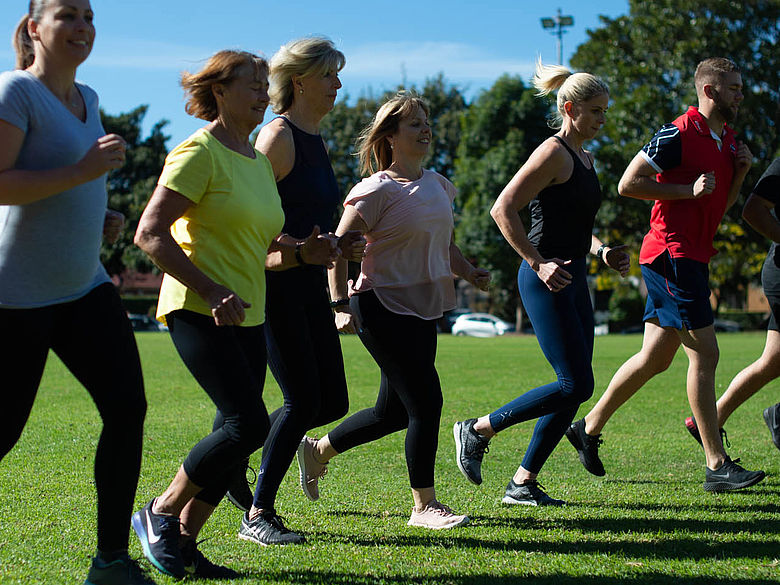With the Sydney Morning Herald Half Marathon around the corner, now is the perfect time to assess your current training and implement new strategies to progress you towards your goal.
If you are currently running once or twice a week and have hit a performance plateau there are a number of things to consider:
How many kilometres are you running each week?
How consistent are you each week, are you running frequently enough?
Are you including a variety of intensities, surfaces, grades and distances?
Where are you at now, and where do you want to be on race day?
By far the simplest way to improve your running is to safely increase your weekly 'mileage'. Generally a rule of a maximum 10% increase in mileage each week is safe and will establish consistent volume moving forwards. For example, if you ran 50km last week, next week a total weekly volume of 55km is acceptable and progressively enough to allow your muscular and skeletal systems sufficient time to adapt to the stress. Increasing weekly volume too quickly is a sure-fire way to injure yourself and put a halt to training all together.
Consistency is key. If you're running 3 times a week and you're recovering adequately then adding in an additional run will not only increase your total volume for the week, it will also improve your overall consistency each week.
Consistency should be paired with easy mileage. Too often we see people running their easy-paced runs too hard. This then leads to runners running their hard-paced sessions too easy. Unsure about what your easy pace should be? Keep it conversational, if you are running with a group your easy runs are a chance to catch up on the day's events and plans for the weekend. Easy runs help develop your heart and lungs. Don't fall into the trap of running every run hard and fast, remember, even elite marathoners have their easy days.
How varied is your programming? Is your week made up of easy runs, intervals, reps, long runs and hill training? If you are training for your first half marathon and the goal is to finish, then building your week with mostly easy running and one quality running session is a good place to start with regards to stress adaptation and injury prevention. For those with more running years behind them, a good program should consist of sessions that target both your aerobic and anaerobic systems, taking in different pace zones, heart rate zones and elevation changes.
Determining where you are at currently versus where you want to be can be the difference between training smartly or crashing and burning. Too often people train at a pace or intensity where they think they should be, ignoring their current fitness level. This leads to injuries, missed sessions and general disgust at a perceived lack of results. It pays to be honest with yourself when starting a training block, as you will develop and progress significantly faster in doing so.
Lastly, remember to have fun. Yes this is a challenge, but you chose to commit and you chose to be there on race day. Remember to smile, take in your surroundings and mentally call on all the great sessions you've ticked off in the lead up to the event.
*Disclaimer: Individual results vary based on agreed goals. Click here for details.

